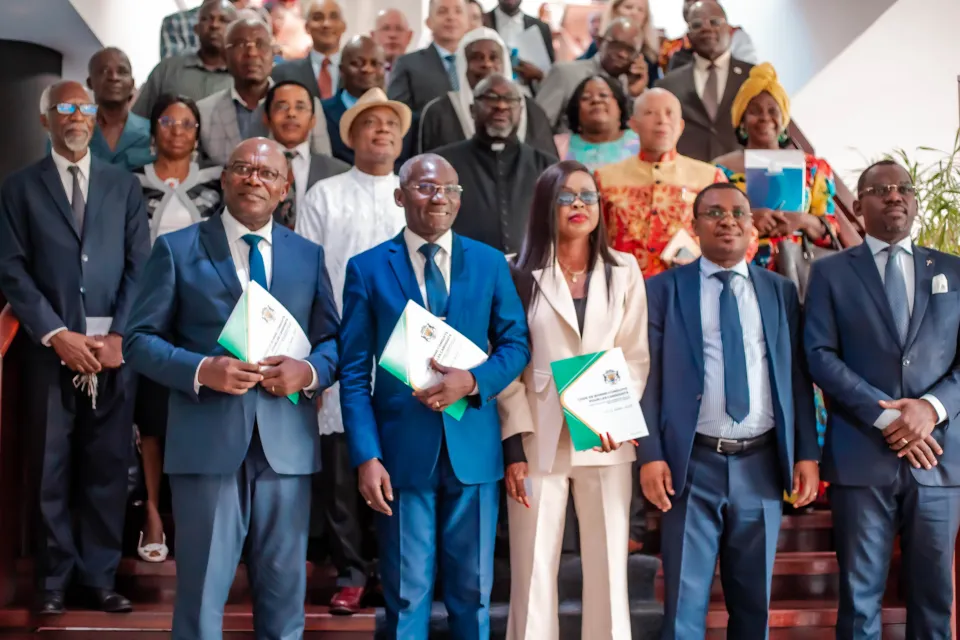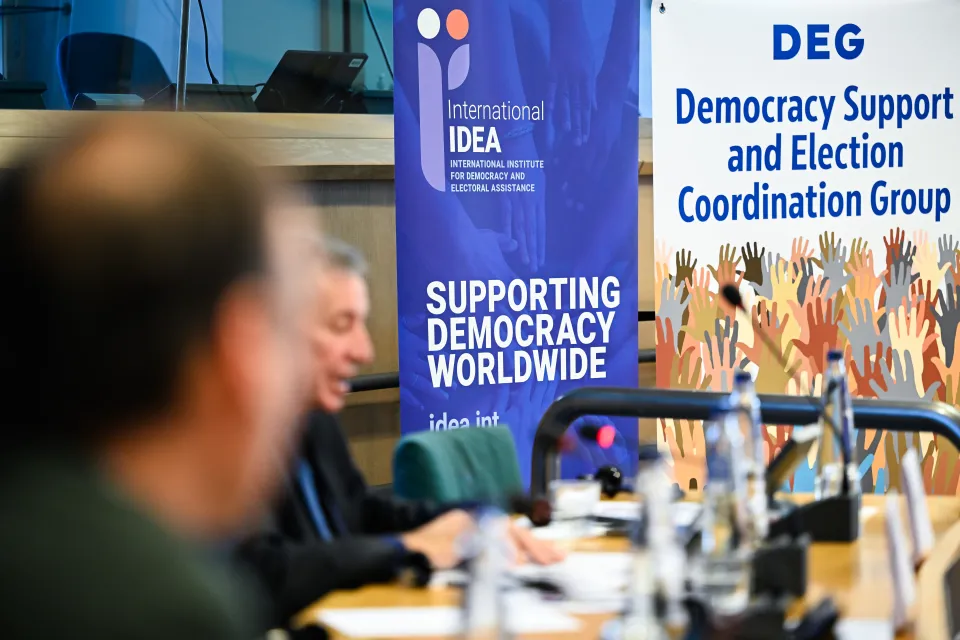The risk of “creating a monster”: An interview with constitutional expert Yaniv Roznai on judicial reform in Israel

Disclaimer: Opinions expressed in this commentary are those of the author and do not necessarily represent the institutional position of International IDEA, its Board of Advisers or its Council of Member States.
The new governing coalition sworn in following Israel’s November 2022 legislative election is considered by many to be the most right-wing and most religious government in the country’s history. It also returns Benjamin Netanyahu to power as Prime Minister for the third time.
The new government has already passed a number of laws and has made proposals for others that will radically change Israel’s political institutions. The proposals that have so far attracted the most attention concern the judicial system. In early January, Justice Minister Yariv Levin presented a plan for a wide-reaching reform that would significantly diminish the powers of the Supreme Court, change the process through which its justices are appointed, and provide the Knesset (parliament) with the power to override the Court’s decisions. A similar proposal was presented by the chair of the Constitutional Law and Justice Committee in the Knesset.
Constitutional change in Israel is procedurally quite simple, as discussed in further detail in the interview. Israel does not have a single-document constitution. Instead, the Knesset (parliament) decided in 1950 to pass substantial pieces of legislation called Basic Laws that have constitutional functions. Basic Laws are passed by ordinary majorities in the Knesset.
To better understand these proposals and their potential impacts on democracy in Israel, Alexander Hudson of International IDEA interviewed Israeli legal scholar Prof. Yaniv Roznai. Prof. Roznai is an Associate Professor and Vice-Dean at the Harry Radzyner Law School, and Co-director at the Rubinstein Center for Constitutional Challenges at Reichman University.
What is this basic substance of this proposal regarding judicial review?
Roznai: The new government, [along with] the chair of the Constitution and Law Committee in the Knesset have proposed really revolutionary changes in the judicial system. Invalidation of laws will be centred in the Supreme Court. The Supreme Court will be able to invalidate laws only when it sits in a full bench of 15 judges, and when 12 out of the 15 consider a law to be unconstitutional (in the second proposal by the chair of the Constitutional Law Committee, it's 15 out of 15). So, only when we have at the very least 80 per cent of the judges of the Supreme Court who say, “We think that a law is unconstitutional,” then that law can be invalidated. At the same time, they have proposed the introduction of a Canadian style override mechanism that would allow 61 members of the Knesset out of 120 to override such a decision of the court. Now, 61 in our system basically means that every coalition can override such a judicial decision. And again, in the other proposal of the chair of the Constitutional Law Committee, this override could also be pre-emptive. So already, when the Knesset sits and deals with the bill, if someone says that this bill is prima facie unconstitutional, they can already say, during the legislative process, “Notwithstanding the Basic Law of Human Dignity, we want this law,” and it'll be shielded from judicial review.
What about the appointments process? Does the proposal change that as well?
Currently, there is a special committee with nine members, three Supreme Court judges, four politicians and two members of the bar. And in order to be appointed to the Supreme Court, you need the majority of seven out of nine. This means that in order to be appointed Supreme Court, the judges and the politicians both have veto power, so they must reach some kind of an agreement. This is a very balanced, I think, system. They want to change it so that the government, the coalition, will be able to nominate the judges, not only to the Supreme Court, but to all courts, even the lower courts. So, this means a total politicization of the judicial appointment mechanism.
How does this proposal change the significance of the designation of a law as a Basic Law?
[The new government has proposed] the abolishment of judicial review of Basic Laws themselves. Now, in Israel, Basic Laws have a constitutional status. However, their legislative process is just like ordinary legislation. So, the ordinary majority can enact in one day a Basic Law, and it is enough to simply give it the title, a Basic Law. And then that's it. [Under this proposal] it'll be immune from judicial review.
What would these changes mean for the judiciary as a check on the power of the government?
The question of checks is crucial. If you look around the world, all other democracies have various mechanisms to make sure that political power is checked and diffused. Israel is the only democracy in the world without any of these mechanisms. None. We have one parliament with one house that is controlled by the coalition leadership, usually five or six politicians, who can impose their will through coalition discipline.
And we need to remember that in the Israeli system, most parties are actually non-democratic in the sense that there is no democratic process within the party. So, we have totalitarian parties where you have a leader who decides who will be in the party and in which place. It is in this context in which the government is already so strong, that now we want to get rid of those limited checks [such as the Court and the attorney general] that were crucial.
There’s a debate in many countries about the power of the judiciary, and of course the powers of courts vary. Is Israel drawing on particular foreign examples?
What we see now in Israel is what's known in the literature as “abusive borrowing.” They're saying: “Look, let's take the Canadian override clause,” but without a federal system and a complete Bill of Rights and a rigid constitution. Or, “Look at the US: there is a political appointment mechanism of judges. Why can't we be like the US?” Yes, but you don't want to take the separation between state and church and a rigid constitution and a Bill of Rights. So, what the government is doing is selectively picking only those elements from other countries that give the government more powers, but they don't want to borrow all those elements that protect the people, protect rights, or limit the government. So, this is what Kim Lane Scheppele calls the Frankenstate: We create a monster rather than a well-functioning liberal democracy.
What are the likely consequences for minorities in Israel?
The current coalition is the most extreme right wing and religious coalition in the history of Israel. The majority coalition has 64 Knesset members out of 120. So basically, according to our rules, they can enact anything they want. People, I think, have fears mostly about a few issues.
One is issues relating to religion and state. We've already heard talk about promoting separation between men and women in public spheres in certain circumstances. We've also heard proposals that private people who provide public services will be able to discriminate on grounds of religion. We've heard talk about closing the country on Saturday, on the Shabbat, which is a sacred day. The second issue is LGBT rights. Almost all LGBT rights are now recognized in the Israeli judicial system. They were granted thanks to decisions by the Supreme Court—whether it is recognizing their marriage outside of Israel, adoption, and these kinds of issues. There is a big fear that all of these advantages will be taken away. So the LGBT community is rightfully frightened.
The Arab minority will be a target because this coalition aims to promote the national and religious vision of the state. And of course, the Arab minority who anyway was until the recent government [under Naftali Bennet and Yair Lapid from June 2021 to December 2022] totally excluded from the government will suffer. And in a broader context, I think that some of the people in the coalition aim to limit proper checks and balances because they are pushing towards some kind of an annexation. So it is, it is quite clear that the Palestinians will be a target for some of the means that this coalition will push forward.
Does this also have economic implications?
If this proposal will be passed as it is, it will affect the Israeli economy because foreign investments will simply not arrive. Many of the high-tech companies that now provide a huge percentage of Israeli economy will simply move to Cyprus, a 50-minute flight from here with hardly any taxes. I think the influence on the economy will be dramatic. [Because] the influence on the corruption and undermining the rule of law will be dramatic.
What does this reform indicate about the future of democracy in Israel?
I'm extremely worried about our democratic future. Being a student of comparative constitutional law, and seeing around the world the process of democratic erosion, and the way populist governments abuse legal and constitutional means to undermine the other democratic institutions of the government, people now tell me: “What do you want? The Israeli Supreme Court now has absolute powers.” This is of course not true, but I don't know a country in history that lost its democratic character and became a dictatorship because the court was overly activist in its human rights protection or had a very broad understanding of reasonableness doctrine. But I know of many democracies who have collapsed because the government and the executive had too much power.
For some people in Israel, democracy equals a majority decision-making rule. [Supporters of the new government might say,] “Because we are the majority, we won, we represent the people. And if the people [are] sovereign, then the majority is sovereign. And if the majority is sovereign—being the representative of the people—then any limitations on its powers are simply illegitimate. And therefore, it is totally legitimate and democratic to get rid of gatekeepers, and the judiciary, and other checks on the on the power of the majority.”
In a nutshell, I think this will have an extremely negative effect on our entire democratic system: on our way to be an illiberal democracy and perhaps a partially free country in the various [democracy] indexes in the future. I hope we will not get there.




